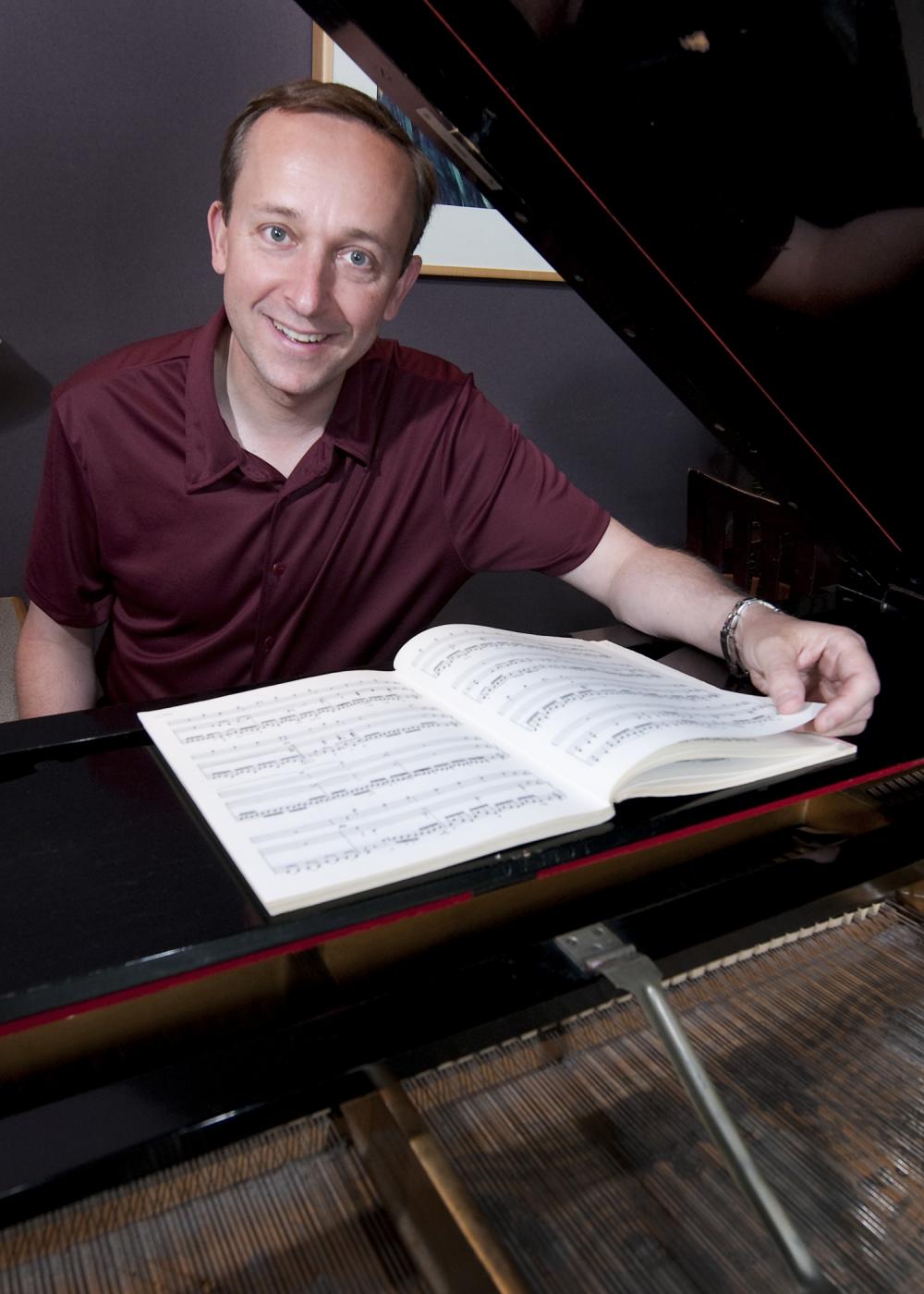Music therapy as a tool for rehabilitation
“IT’S OFTEN THE BUY-IN TO STAY IN RECOVERY”
MUSIC THERAPY AS A TOOL FOR REHABILITATION
The Report , September 2018
Most people assume music therapy is either a sing-along or relaxation, according to HSA member and music therapist Kevin Kirkland. “That is part of what you do, but just a small part.”
When Kirkland first graduated with a bachelor’s degree in music, he was among those who didn’t know much about music therapy. “I hadn’t heard of music therapy but I had seen books in the library on it,” said Kirkland.
Upon graduation, he launched into a career teaching piano and music theory, but hated it. After working a job in the admitting department of a hospital, he felt inspired to combine his love of music with health care.
He learned of a music therapy program at Capilano University in North Vancouver and decided to audition. He now works as a music therapist at the Burnaby Centre for Mental Health and Addictions, and teaches part-time at Capilano University in the music therapy program.
Kirkland describes music therapy as the use of “music-centred experiences as agents for change. It’s based on musical experiences and the therapeutic relationship.”
“That creative side appeals to people.”
In the field of mental health and addictions, music therapy is used as a tool for self-expression and processing life experiences. It is often coupled with counselling, which is in the scope of practice for music therapists.
Music therapy is “a blend of insight and capabilities,” according to Kirkland. “And it’s a fun way into opening up and talking about issues.” The approaches used are often based on a client’s interests.
For some, this may involve playing music and engaging in a recording process. “A lot of clients are able to play music even though they have had no formal training, and it’s often the buy-in to stay in recovery because they like music and they come to the music studio. We have recording software and guitars and drums and instruments.” And when clients enter the studio and engage with the recording software, they may walk away with a new skill.
In the program Rap and Recovery, Kirkland uses rap as a therapeutic tool. “Clients write personally meaningful lyrics about their lives, or mental health, or the recovery process, and record it to a beat, and turn it into an .mp3. They have a product that they can listen back to and can follow their progress.” The client may sometimes engage in a discussion with the music therapist about their lyrics.
Kirkland said music therapy has made a major contribution to some peoples’ lives. “I think the most successes are with those who are probably on the cusp of not succeeding, but they like music so much that they stay engaged with it, and that becomes the focus of their sobriety.”
“Whether they have a relapse or not, they come back to music and they are able to stay with it,” he said.
Kirkland has had clients who use rap to write about social issues facing their communities. He spoke of one client in recovery who used rap to write about drinking, overdose deaths, and suicide on his nation’s reservation. The lyrics served as a springboard into a group discussion surrounding the legacy of residential schools and the impacts of intergenerational colonial violence.
“Six months in and he did not have a relapse,” said Kirkland. For him, this speaks to the successes of the Rap and Recovery program.
Expanding opportunities for music therapy
Kirkland said he would like to see an increased awareness by health facilities and decision-makers about what music therapy is and how it can work in particular health settings. “There are areas of practice that are newer and emerging,” said Kirkland.
“Riverview Hospital had several music therapists. It’s established in mental health there but not so much in general in Vancouver or in BC.”
Traditionally, music therapy has been used in geriatrics, palliative care, and in children’s health. But Capilano University is increasingly applying music therapy to adult and teen mental health, including the treatment of drug addiction and early psychosis.
For employers participating in Capilano University’s music therapy internship program, a music therapist is sometimes brought in to supervise a student, since one may not exist at the facility.
For mental health facilities that accept student interns in music therapy for the first time, reactions are very positive.
“They would go, ‘oh my God, we have to have a music therapist. This works really well. How do we do this? How do we create a job?’” said Kirkland.
As an HSA member, Kirkland is particularly interested in creating unionized job positions for music therapists in BC. “How do we create positions that are unionized and not just always contracted? We’ve had discussions with facilities who are looking to hire and what kind of parameters are best for that, and how to create an HSA positon for it.”
To read the full issue of the September edition of The Report online, click here.